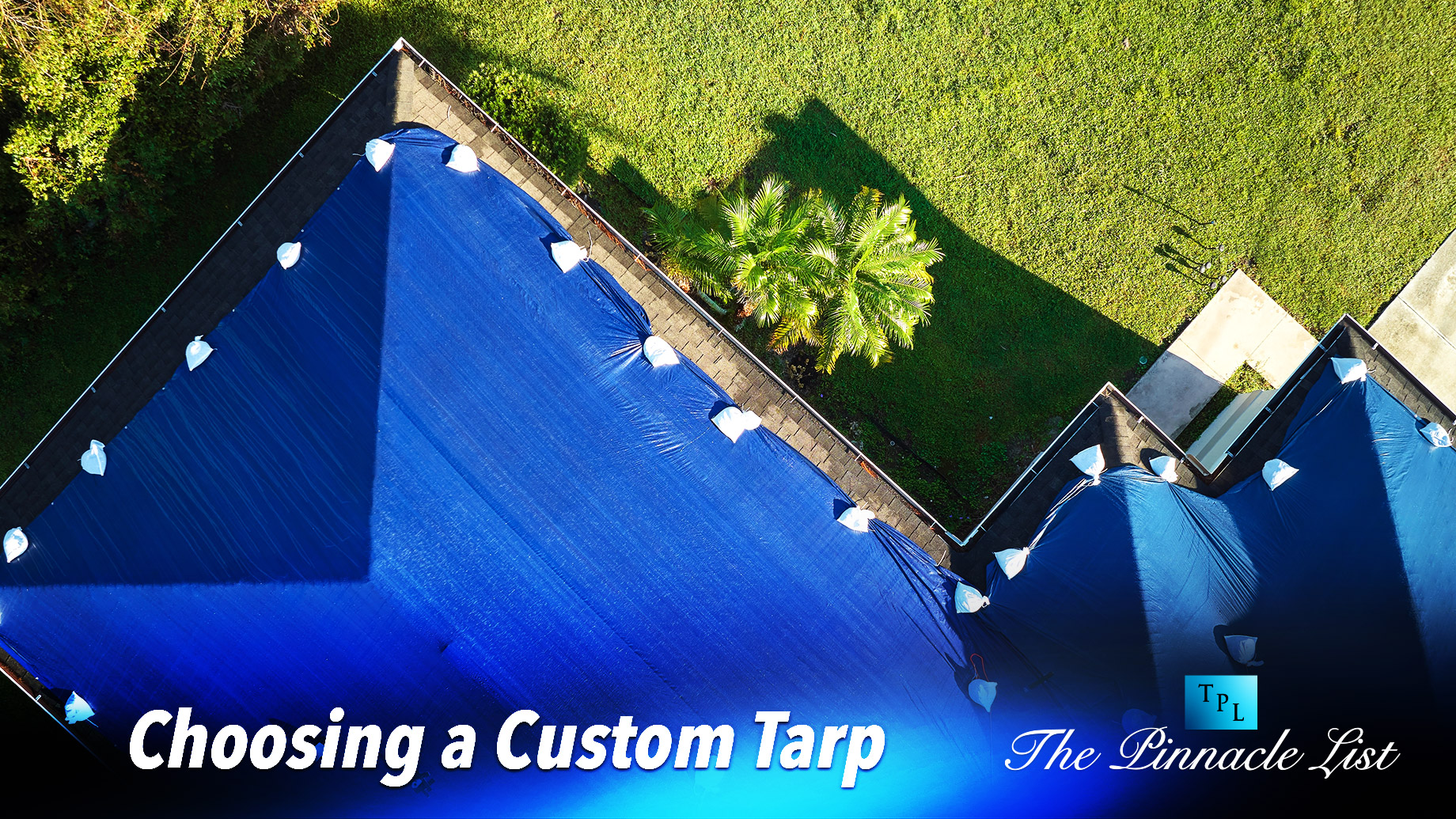
Tarps, short for tarpaulins, are staggeringly flexible and helpful for many applications, from safeguarding vehicles and hardware to giving temporary shelter and tarp materials. In any case, not all tarps are made equivalent, and picking the right custom tarp for your particular necessities can have a tremendous effect on execution and solidness.
This article will assist you with exploring the most common way of choosing the ideal custom tarp by thinking about different factors like material, size, weight, and extra highlights.
Figuring out the Significance of Custom Tarps
Custom tarps offer customized arrangements that are the norm, but off-the-rack tarps frequently can’t coordinate. They are intended to fit explicit aspects and necessities, guaranteeing ideal assurance and proficiency.
Here are a few vital motivations to pick a custom tarp:
- Wonderful Fit: Custom tarps are made to your precise determinations, guaranteeing an ideal fit for the planned application.
- Improved Security: With a cosy fit, custom tarps give better inclusion and insurance against the components.
- Strength: Custom tarps can be planned with explicit materials and elements to endure the circumstances they will be presented to, upgrading their life expectancy.
Key Elements to Consider While Picking a Custom Tarp
1. Material
The material of the tarp is vital for deciding its reasonableness for different applications. Various materials offer shifting degrees of sturdiness, adaptability, and protection from ecological variables.
- Polyethene (PE): Lightweight, waterproof, and UV-safe, polyethene tarps are great for tarp things that need insurance from the components. They are frequently utilized for transitory temporary shelters, ground covers, and hardware insurance.
- Polyvinyl Chloride (PVC): Known for its strength and protection from synthetic compounds, PVC tarps are appropriate for modern applications, such as tarp hardware and building locales. They are likewise waterproof and UV-safe.
- Canvas: Produced using cotton or polyester, material tarps are breathable and tough, making them ideal for safeguarding things that need ventilation. They are ordinarily utilized for farming purposes, outside furniture covers, and development projects.
- Vinyl: Vinyl tarps are substantial and waterproof, offering great protection from scraped spots, synthetic compounds, and UV beams. They are frequently utilized for shipping, modern applications, and long-haul open-air stockpiling.
2. Size and Shape
Custom tarps can be made to fit any size and shape, guaranteeing total inclusion and assurance. To decide the right size, measure the elements of the area or thing you want to cover. Think about the accompanying:
- Length and Width: Guarantee the tarp is adequately enormous to cover the whole region with some additional material for secure attaching.
- Shape: Custom tarps can be intended to fit unpredictable shapes, like boats, hardware, and vehicles, giving a cosy fit and better insurance.
3. Weight and Thickness
The weight and thickness of a tarp are significant variables that influence its solidness and convenience. Heavier tarps are for the most part more solid and impervious to mileage, however, they can be more difficult to deal with and introduce.
- Lightweight Tarps: Commonly produced using polyethene or lightweight material, these Tarps are not difficult to deal with and introduce, making them ideal for impermanent or less requesting applications.
- Medium-Weight Tarps: Offering harmony among toughness and usability, medium-weight tarps are reasonable for various applications, including outside covers and development projects.
- Uncompromising Tarps: Produced using thick vinyl or rock-solid material, these tarps are intended for requesting applications that require the greatest sturdiness and security, like modern covers and long-haul stockpiling.
4. Climate Opposition
Consider the ecological circumstances the tarp will be presented to while choosing the material and elements. Key climate-safe properties to search for include:
- Waterproofing: Fundamental for shielding things from rainfall and dampness. Search for tarps with fixed creases and waterproof coatings.
- UV Obstruction: Significant for safeguarding things from sun harm. UV-safe tarps forestall blurring, breaking, and disintegration made by delayed openness daylight.
- Wind Obstruction: For regions inclined to high breezes, pick tarps with supported edges and grommets for secure attaching.
- Cold Obstruction: In colder environments, select tarps that stay adaptable and sturdy in low temperatures to forestall breaking and weakness.
Normal Uses of Custom Tarps
Custom tarps are utilized in a large number of businesses and applications, each requiring explicit elements and materials:
- Development: Tarps are utilized to cover building materials, safeguard incomplete designs, and make transitory sanctuaries on building locales.
- Agribusiness: Ranchers use tarps to cover crops, roughage bunches, and hardware, shielding them from climate and nuisances.
- Transportation: Drivers use large tarps to cover and get loads, guaranteeing they stay safeguarded during travel.
- Entertainment: Custom tarps are utilized for setting up camp, drifting, and outside exercises, giving sanctuary and shielding hardware from the components.
- Modern: Plants and stockrooms use tarps to cover hardware, make parcels, and shield merchandise from residue and flotsam and jetsam.
Conclusion
Picking the right custom tarp includes thinking about different elements, including material, size, weight, climate opposition, and extra highlights. You can choose a tarp that gives ideal insurance and solidness by understanding your particular necessities and the circumstances in which the tarp will be presented.